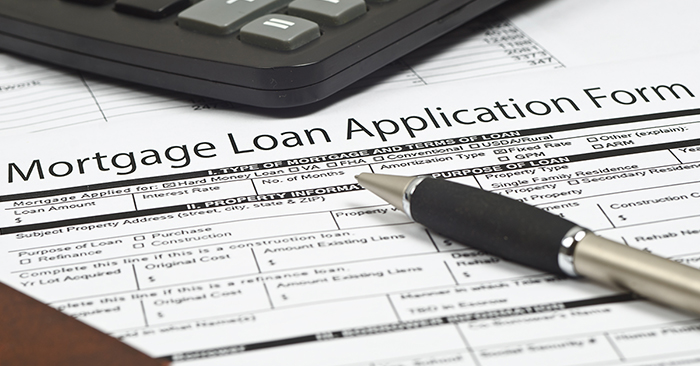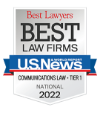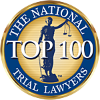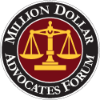Mortgage and Banking Fraud Whistleblowers
Fraud in the banking and lending industries can lead to catastrophe for countless people.
Fraud in the banking and lending industries can lead to catastrophe for countless people.
The global nature of the banking and mortgage industry underlies the very real, personal effect of fraud on everyone. As we witnessed when the U.S. housing crash occurred in the late 2000s, there can be a disastrous ripple effect. People lose their homes. Retirement and pension funds – deeply invested in the market to help grow those funds – come crashing down. When banks misbehave, whistleblowers may be our only chance to stop the dominoes from falling and dragging the nation’s economy into crisis.
According to the FBI, there are two primary types of mortgage fraud: fraud for profit and fraud for housing. An individual home buyer falsifying an application is fraud, but what the government needs whistleblower help with is fraud at the institutional level. When a lender or builder looks the other way, or encourages or engages in fraudulent behavior for hundreds or thousands of applications, the government stands to lose millions. Mortgages are largely government-backed.
Whistleblowers are in unique position to spot fraudulent behavior, as the government can’t scrutinize every transaction. It needs a whistleblower to report the wrongdoing.
In a whistleblower case handled by our own Bill Nettles when he was a U.S. Attorney, banks were called out for illegally producing documents for mortgages through the process of “robosigning” – signing documents without reviewing their contents or supporting documentation – in a fraud scheme that enabled banks to foreclose on homes and cost the government millions.

Mortgage fraud is a material misstatement, misrepresentation, or omission in relation to a mortgage loan. That is largely the FBI’s definition, but it deserves some explanation.
While a lone home buyer may perpetrate fraud by falsifying a mortgage application, the government stands to lose exponentially more taxpayer money when the fraud happens at scale. It could be banks, brokers, builders, private companies, or individuals with a scheme. These operations may involve hundreds or even thousands of fraudulent loans or loan modifications. This is where whistleblowers can have a massive effect.
Anyone can notice fraud at any point in the process. You don’t have to work at a bank, and fraud need not be a company-wide mandate – a few bad actors within a bank, construction, or real estate company can cause a great deal of harm. Hot real estate markets, when supply is low and demand is high, send prices soaring and offer an opportunity for fraudsters to slip away with millions using various schemes.
The scams and methods used differ widely. Remember that high-level fraudsters who work at large scale have all the time in the world to dream up new ways to cheat the government and taxpayers, so no list of potential fraudulent practices can truly be complete. However, here are some behaviors and red flags that whistleblowers can watch for:
If someone is lying in order to obtain government funds, call us. We can talk it through with you discreetly. You may be in a unique position to recognize what’s happening. The government may need your knowledge, experience, and familiarity to uncover the truth. Trust your gut. If something feels off, don’t hesitate. Let us help you.
The mortgage crisis spawned many cases, but one particular case involved a whistleblower in Colorado. The government established the Home Affordable Relief Program to help homeowners keep their homes. According to the whistleblower’s information, Bank of America allegedly engaged in practices designed to prevent those homeowners from becoming or staying eligible for HARP to avert substantial losses to the bank’s bottom line – and even make money.
The bank and its agents allegedly engaged in numerous fraudulent activities. They “lost” homeowners’ documents, failed to credit payments during trial modification periods, and misled homeowners regarding their eligibility for the program. The corrupt practices cost the government millions, and cost many people their homes. The bank settled these and other allegations as part of a $25 billion settlement.5
In 2020, a whistleblower helped take down a lender scamming the Department of Housing and Urban Development. The company agreed to pay $24.9 million – and the whistleblower walked away with almost $5 million.1,5
The FBI calls it Financial Institution Fraud (FIF) and classifies it as external or internal. There are countless shifty methods that some banks or bad actors within them can put their thumbs on the scales and take the government to the cleaners.
External FIF is when persons or businesses defraud banks, which involves federally insured funds. Internal FIF involves bad actors within the financial institutions rigging the system for a profit at the customers’ and government’s expense.
Banking fraud can take many, many forms. Here are some of the most common that could rise to a qui tam case:
The Financial Institutions Anti-Fraud Enforcement Act of 1990 (FIAFEA), the Financial Institutions Reform, Recovery, and Enforcement Act of 1989 (FIRREA), and the False Claims Act largely govern banking fraud. There are, of course, other laws that apply, but these are the three primary sources.
More importantly, all three of these laws have whistleblower rules, encouraging honest bank and lender employees to stop fraud that can and has amounted to billions of dollars.
If you’re unsure if you have a qui tam case, ask yourself this: Is someone cheating or attempting to cheat the government? If the answer is yes, contact a whistleblower attorney.
In many cases, mortgage fraud and banking fraud are interrelated. In the case that helped bring the word “robosigning” into the American lexicon, our own Bill Nettles, then the U.S. Attorney for the District of South Carolina, followed a whistleblower complaint to discover a massive case of fraud. It resulted in, as of 2022, the largest False Claims Act settlement in the history of the District – $95 million.
A Florida homeowner spotted the signs and brought the complaint when her home was threatened with foreclosure. After a lot of digging and evidence gathering, the facts of the case became clear and involved the four largest lenders in the country – Bank of America, JPMorgan Chase, Wells Fargo, and Citigroup.
It turns out that the banks were using illegal shortcuts to foreclose on homes. In a nationwide scheme, the banks chose to falsify documents instead of obtaining them properly. This servicing misconduct involved creating false mortgage assignments to submit to the federal housing administration mortgage insurance claims.
Essentially, using “robosigning” among other techniques, the banks were forging documents that would be used to prove who really owned the home and enabled them to foreclose. The scheme took advantage of a bank-created system of tracking ownership which, conveniently, avoided public records.
The practice was abusive as well as fraudulent, and it may have continued without the work of a whistleblower. When the case settled, the whistleblower was awarded $18 million.1,4
The moment you suspect fraud, your first move should be to call a whistleblower attorney. Why? Because any other action could lead to consequences you don’t want:
Our attorneys have decades of combined experience handling whistleblower cases large and small across private practice and while serving the government. Our firm has the experience and the resources to fight for your best interests and help build your case. Call our confidential case line at 1-888-292-8852 and discuss what you know discreetly. You can also contact us online or chat with us, which are both secure for your protection.
Even if you aren’t sure you have a case, call. Put our experience to work for you with a free case evaluation. There’s no obligation. If we believe you have a case and you choose to hire us, we do not charge you a fee unless we’re able to collect for you.2
5 Cases for example purposes and not handled by the Carolina Whistleblower Attorneys.
“Bill has the ability to ‘think outside the box’…which makes him extremely effective as an advocate for his clients.” 1 — Attorney who previously worked with Bill





If you’re wondering if it’s a good idea to speak with a whistleblower lawyer about what you know, let us set the record straight.
"*" indicates required fields